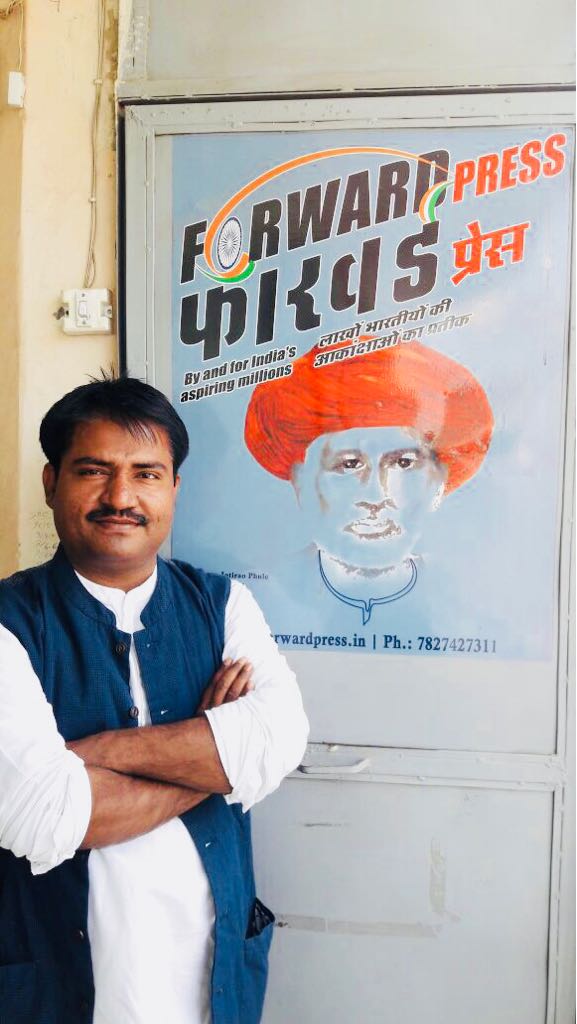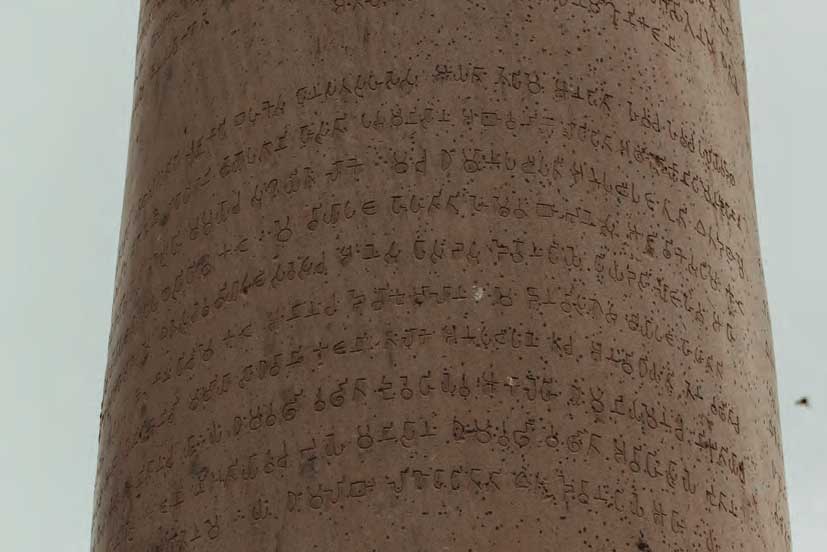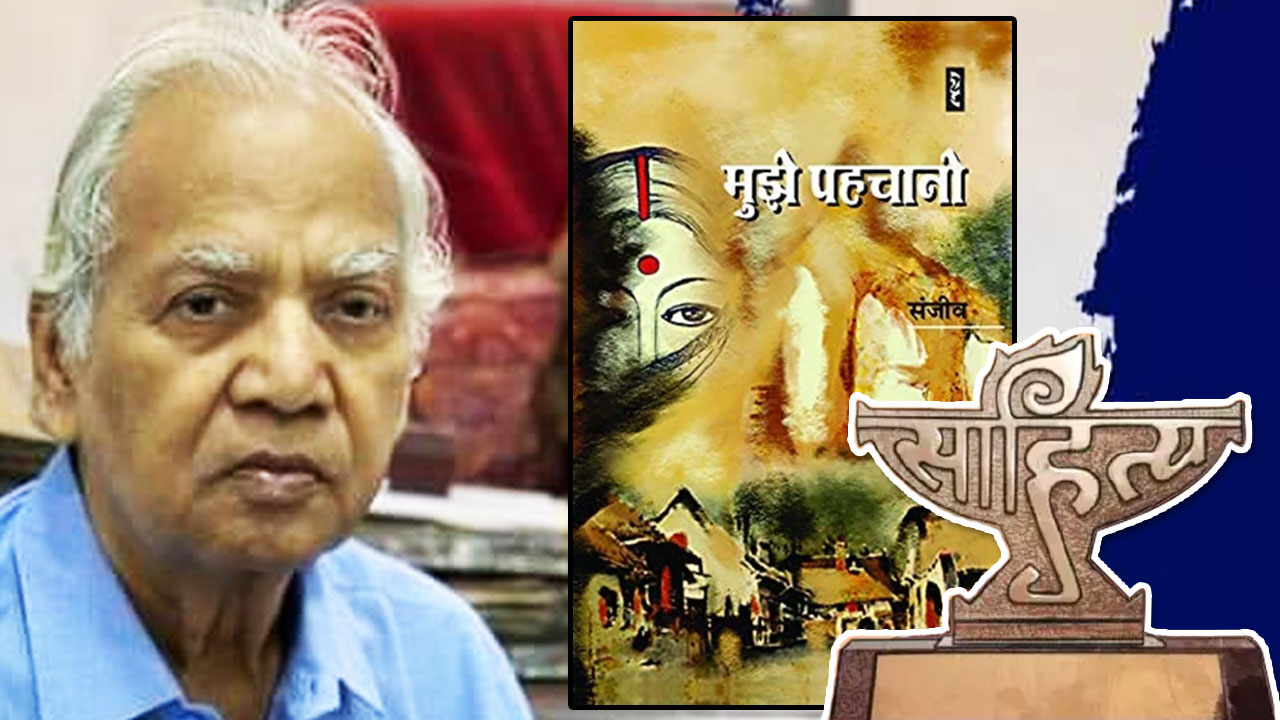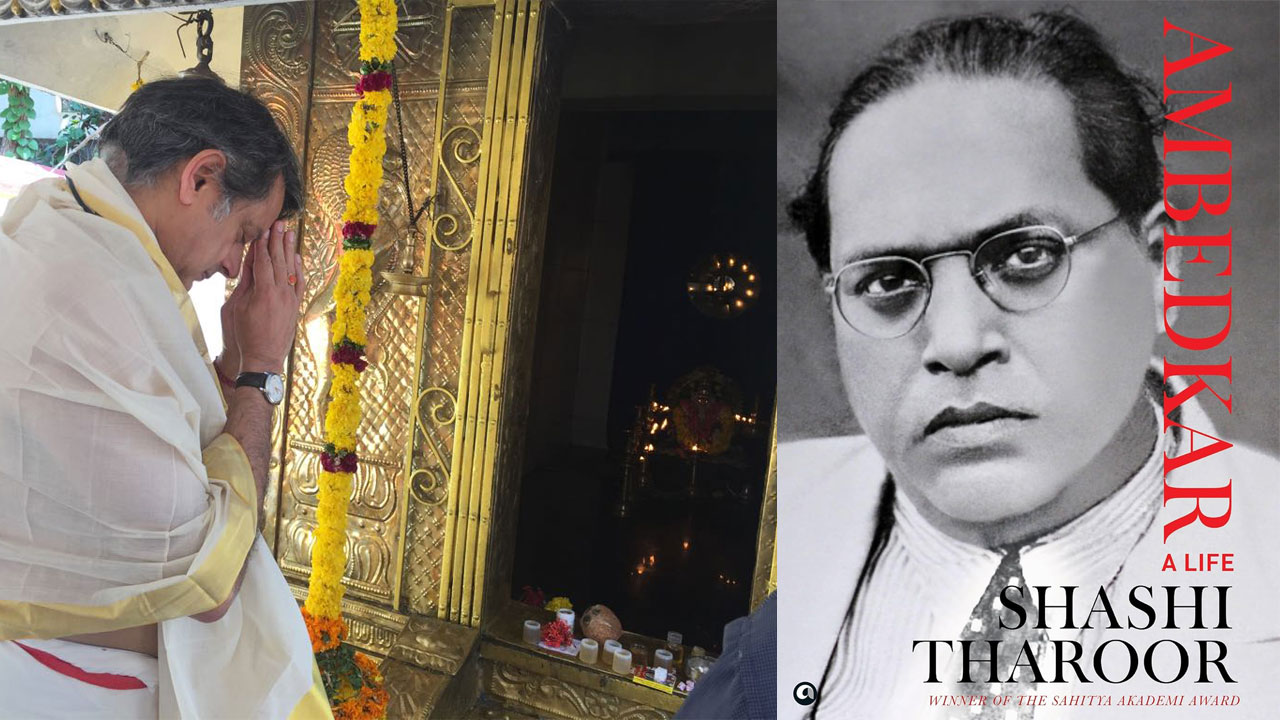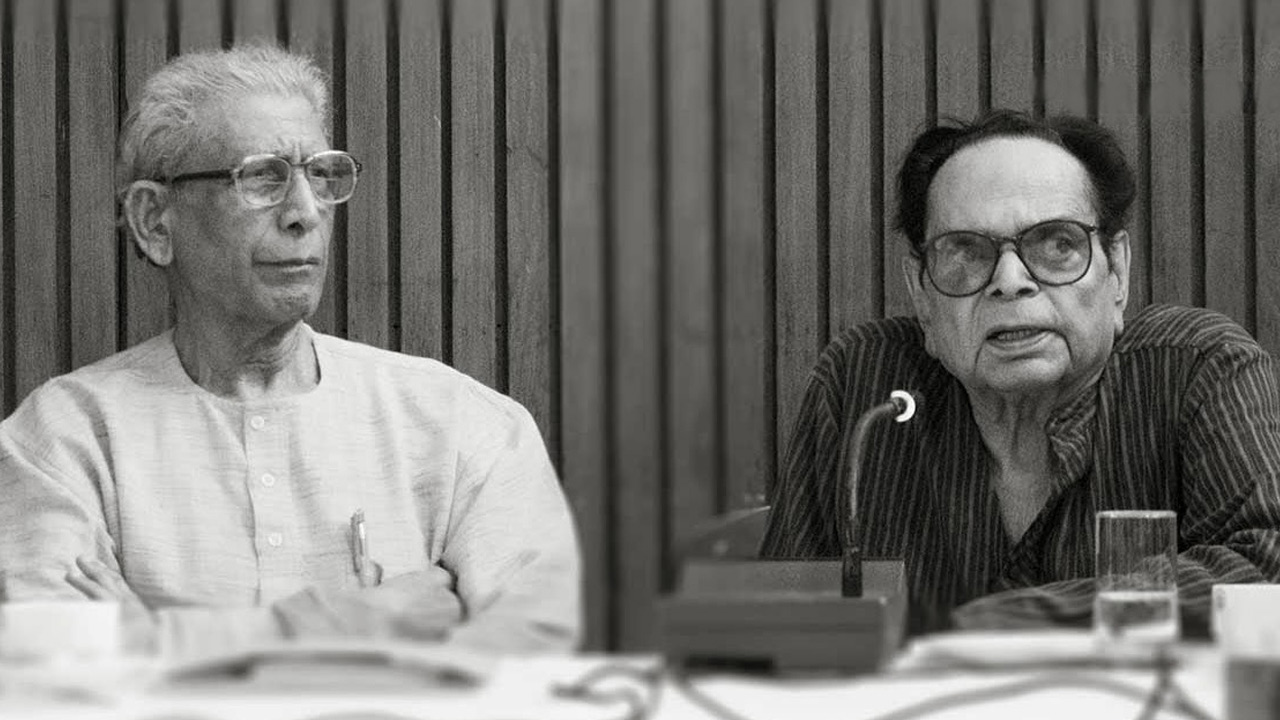Dalit Literature has been confronting mainstream literature on many planes. Dalit critics are making their voice heard, and the canvas of Dalit literary discourse has widened. What course should Dalit Literature take in the present sociopolitical milieu? Dr Rajesh Paswan, an associate professor of Hindi at the Jawaharlal Nehru University, New Delhi, discussed these matters in an interview with FORWARD Press. This is the second instalment:
Continued from the first instalment
As far as other genres of literature like short stories, novels, poems and plays go, there seems to be a sort of vacuum in Dalit Literature in North India. Why is that so?
No, there is no vacuum. Works in these genres are also being published. Good poems, short stories, novels and plays are being written. Historical fiction is also being written. But the “I” factor and assertion of identity is pervasive, and finds expression in poems, short stories and plays too. Whenever a Dalit writes a short story, it is based on his personal experiences, with some minor changes here and there. Many plots in Omprakash Valmiki’s short stories can be traced to incidents mentioned in his autobiography. The Dalit litterateurs – whether they are writing essays, or short stories or novels or anything else – tend to include experiences of their own life or of other Dalits in their work. In other words, their short stories, novels and poems are mere extensions of their autobiographies. They are also an extension of Dalit consciousness. For instance, there is this famous poem by Omprakash Valmiki titled “Thakur Ka Kuan, Khet Thakur Ka…” He writes that nothing belongs to him; everything belongs to the Thakur. It is true that only a small section of people own lands and monopolize natural resources. The Dalits have access to nothing. So, the ironies of Dalit society find mention in all genres of Dalit Literature.
One may see this as a shortcoming. But we must remember that in the past, the leading Dalit litterateurs were not writing full-time. They had their regular occupations. Omprakash Valmiki worked in an ordnance factory. Kanwal Bharti also had a government job. Sheoraj Singh Bechain was an academic. Jaiprakash Kardam was a government officer. People like Mata Prasad wrote while he had government jobs. Those in academics are focused on teaching, studying and research. Now, a second generation is emerging in the field of academics, gradually attaining academic excellence. This is not to say that the earlier generation was deficient, but their knowledge was based on self-study. Now that they are entering academics, their works are more in keeping with the academic rigour and global trends. I often say in jest that when we start cultivating barren land, the first crop is rather indifferent. But as we continue tilling the land, irrigating the crops and removing weeds, the crops become healthier and the grains better. The same is happening with Dalit Literature. If the corpus of Dalit Literature is expanding so fast, it is because the authors of both the first and second generations are writing. With time, Dalit Literature will mature.
Talking of mainstream Hindi literature, we should remember that it came into being hundreds of years ago, while Dalit Literature is only a few decades old. There were writers in mainstream Hindi literature whose several past generations had literary leanings. Dalit Literature will also reach that stage, but in time. Things will improve in the years to come. It is heartening to see that with India becoming a republic, a middle class began emerging among the Dalits after reservations were put in place in 1950. This Dalit middle class contributed to increased volume of Dalit Literature. What was written before 1950 was lacking in sophistication. Today, it appears that the republic will weaken in social and economic terms, owing to political and economic powers getting concentrated in the hands of a few individuals and parties. The times to come will be very tough.

Dalit Literature seems to be lagging behind in the field of criticism. Very few people are engaged in this work. Does this concern you?
You are right. There is very little happening in the field of criticism. I believe there are reasons for this. Once any work is published, everyone has the right to discuss it, to comment on it. Books, after all, belong to the readers. They can always call them good or bad, rubbish them or praise them. This is the absolute right of the readers. But I find that our Dalit intellectuals, Dalit litterateurs – they don’t take criticism in the way a writer should. They begin enquiring about the caste of the critic, his ideology, his surname. They evaluate the criticism on these parameters. I think that these factors have no place in an intellectual debate. The comments should be discussed, not their authors. Once a work is in the public domain, everyone has the right to critique it. The writer should listen to the criticism, understand what the critic is trying to say and if the writer feels that changes are required, they should make them. This spirit is somewhat lacking in Dalit litterateurs. That is why people are reluctant to critique Dalit literary works. When there is criticism, instead of discussing the ideas involved, we focus on the religion, caste and ideology of the critic. Once that happens, the next time round, critics simply avoid critiquing a body of work. Another point I wish to make is that Dalit writers have been vocal critics of Hindi literature and the Hindu social order. In that sense, Dalit criticism has had a wide sweep. Dalit litterateurs saw history from a different perspective. They analyzed politics differently. In Dalit Literature, most of the essays are based on criticism of the Hindi literature. How Dr Dharamvir saw Kabir, or how he saw Premchand; Kanwal Bharti translation of a really good book on Kabir, titled ‘Kabir and Kabirpanth’, has just been published; there are really good books on Raidas by Dr Dharamvir, too; there are works on aesthetics – these are all proof of development of criticism. But criticism of Dalit Literature in Dalit Literature is lagging behind. You may call it infatuation with your own work, or you can call it self-indulgence, but it is there. I feel that the lesser it is, the better it would be for Dalit Literature.
It is said that literature gives direction to politics. It is even said that literature is a tool for capturing power. How do you see Dalit Literature in this respect?
Not only Dalit Literature, but all the activities of the Dalit communities have been supportive of Dalit politics. Many Dalit-centred discourses have given a boost to Dalit politics. But Dalit politics has not reciprocated in an equal measure. It has not supported Dalit Literature, Dalit social order, Dalit discourse or Dalit spiritualism. Let me give you an example. When Dalits who are conscious, who are aware, boldly put across their views in society, it is said they are doing politics. I completed my MA in 1997, then did my MPhil and PhD on Dalit Literature. Whenever I went for a job interview, discussions began with Dalit Literature but soon veered towards Dalit politics. It is apparent that every Dalit is part of Dalit politics. But if we look at, say, the Bahujan Samaj Party (BSP) as representative of Dalit politics, we find that it has hardly addressed issues related to Dalit authors, Dalit social activists, Dalit sensitivities, especially the sensitivities of Dalit youths, etc. It is not the politics of BSP but the politics of Kanshi Ram that did some good to the Dalits. Kanshi Ram opened the doors of politics to the Dalits. That led to an expansion of Dalit Literature. He mobilized social organizations. He organized discussions on great personalities. Dalit Literature chipped in to amplify these discussions. Biographies of the great personalities were written and circulated widely. Newspapers and magazines were brought out. All of this made the Dalit community politically conscious. But, in comparison, little was done to strengthen Dalit Literature, even at the time when Dalit politics was at its zenith. This is a shortcoming of Dalit politics. Dalit politics may have fallen out of favour, but Dalit Literature is on the rise. Dalit entrepreneurship is also growing.
What you mean by Dalit spiritualism?
Everyone has his or her own spiritual preferences. For instance, Babasaheb Ambedkar embraced Buddhism. At the time, many people felt that they should become Buddhists and many still feel so. They feel religious conversion will solve their problems. That is why many movements promoting conversions are underway. Efforts are being made to draw Dalits to Buddhism. Those running such campaigns feel that this will fulfil the spiritual needs of the Dalit community. I coined this term “Dalit spiritualism” recently. Some may disagree with it, but the fact is that religions and their institutions are no longer only about worship. They have become business units. You can even call them companies. Money is invested in them and they have a structure. I am thinking along these lines because there is huge unemployment among the Dalits. One way to reduce this unemployment would be give Dalit youths the responsibility of running Buddhist Viharas and other institutions like parks and museums built in the memory of Ambedkar and other Dalit luminaries. Look at Hindu temples. They generate income. People perform puja and also make offerings. Those offerings are the source of livelihood for some families. Some may say that these offerings, in a way, promote ritualism and superstition. But Dalits can treat this as an opportunity. All the institutions related to Ambedkar can be developed as knowledge centres. At present, people visit these institutions only on the birth and death anniversaries of Ambedkar. If Dalit youth living near the statues of Babasaheb start a library or a coaching centre there and develop them as as places of learning, these sites can become resource centres. People living in the vicinity can come there to meet and work. Religion may have a million vices but it does bring people closer. People go to mosques every Friday. Yes, they offer namaz but they also meet and talk and get to know about each other. Similarly, people visit churches on Sundays and interact with each other. But such regular interactions are uncommon in the Dalit community.
Once when I was in Nagpur, I got to know that women members of an organization called Bhim Mahila Mandal gather at the home of one of them every week and hold discussions. Wherever there are parks and Buddhist Viharas built in Ambedkar’s memory, the same kind of culture can be initiated. This will give work to lakhs of Dalit youth. And they won’t be spreading superstition but logical thinking and knowledge, making the people aware. They would spread innovative ideas. Once such activities start, people will start visiting these sites. I think this is something which needs to be done. (Laughing) I may do this myself after retirement.
(Translation from the original Hindi by Amrish Herdenia)
To be continued
Forward Press also publishes books on Bahujan issues. Forward Press Books sheds light on the widespread problems as well as the finer aspects of Bahujan (Dalit, OBC, Adivasi, Nomadic, Pasmanda) society, culture, literature and politics. Contact us for a list of FP Books’ titles and to order. Mobile: +917827427311, Email: info@forwardmagazine.in)
